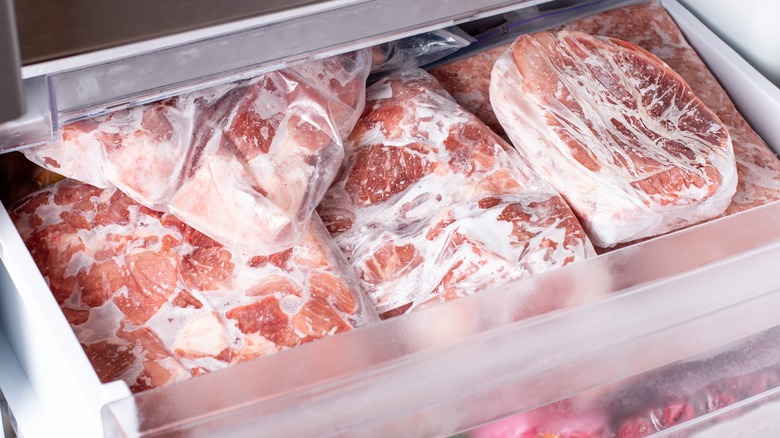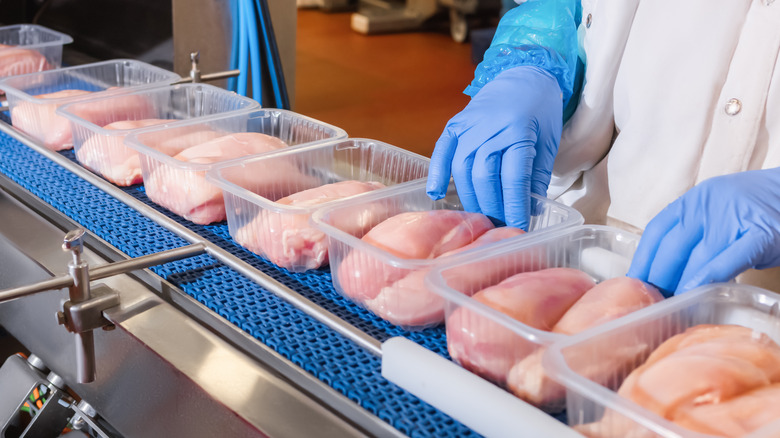New Details About How Long Coronaviruses Can Survive On Frozen Food
If you think COVID-19 has come to an end, check the food in your freezer. According to a recent study in Applied and Environmental Microbiology, viruses related to SARS-CoV-2 can survive in cold storage environments for up to 30 days.
The researchers were curious why New Zealand and Vietnam saw outbreaks more than three months after their last reported case of COVID-19 transmission (per the study). They believed that COVID-19 might survive on other surfaces and reinfect people. Although COVID-19 primarily spreads through air droplets and personal contact, the virus can be found on cardboard and stainless steel surfaces that can make contact with food. Therefore, the researchers suspected the processing of meat and seafood could be to blame.
The study placed coronaviruses similar to SARS-CoV-2 on chicken, beef, pork, and salmon. These virus "surrogates" were chosen because they have a similar structure to SARS-CoV-2. The researchers stored them at typical refrigerator and freezer temperatures.
Some coronaviruses survive better than others
According to the study, although most of the viruses weakened after seven days in both temperature conditions, some survived after 30 days. The viruses seemed to survive better in the freezer than in the refrigerator.
The results of this study don't necessarily mean that you should throw out everything in your freezer. According to the U.S. Food & Drug Administration, your packaged food is unlikely to infect you with COVID-19 and hasn't had any outbreaks related to food packaging.
Because the researchers didn't test the SARS-CoV-2 virus that causes COVID-19, the virus might not behave in the same way as the ones tested. The researchers stressed the need for more research about how these viruses can spread through contaminated food. They concluded that better measures to prevent contamination of food during processing need to be implemented, such as sanitizing surfaces, utensils, and machines. They addressed the need for disinfecting some foods before they're packaged and distributed worldwide.

